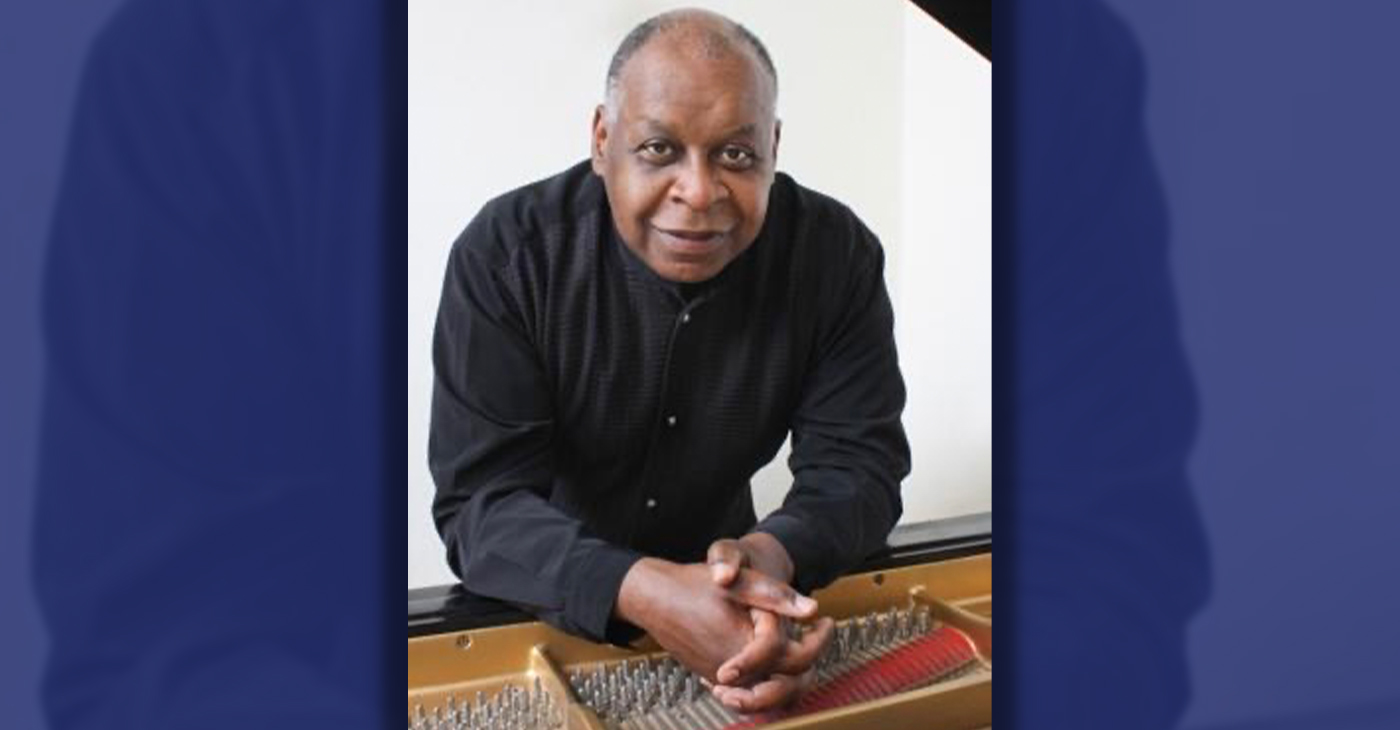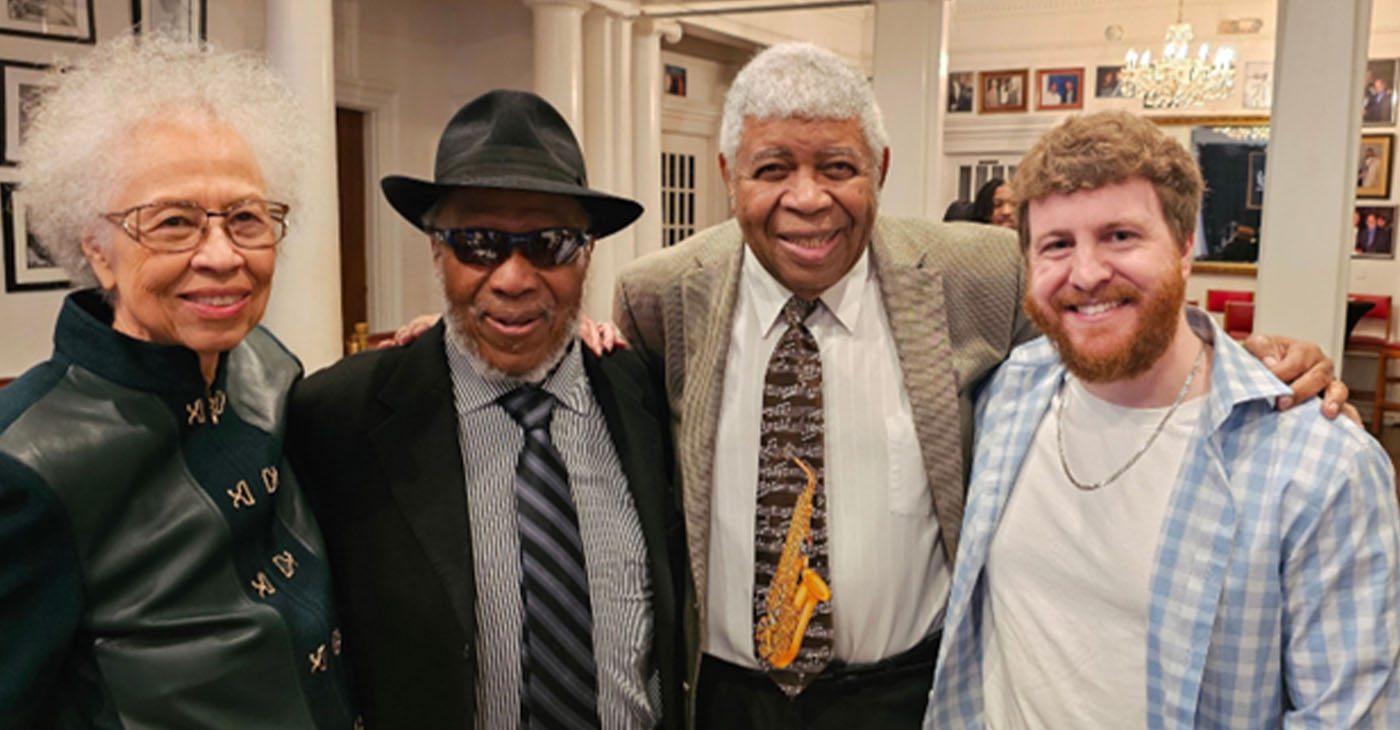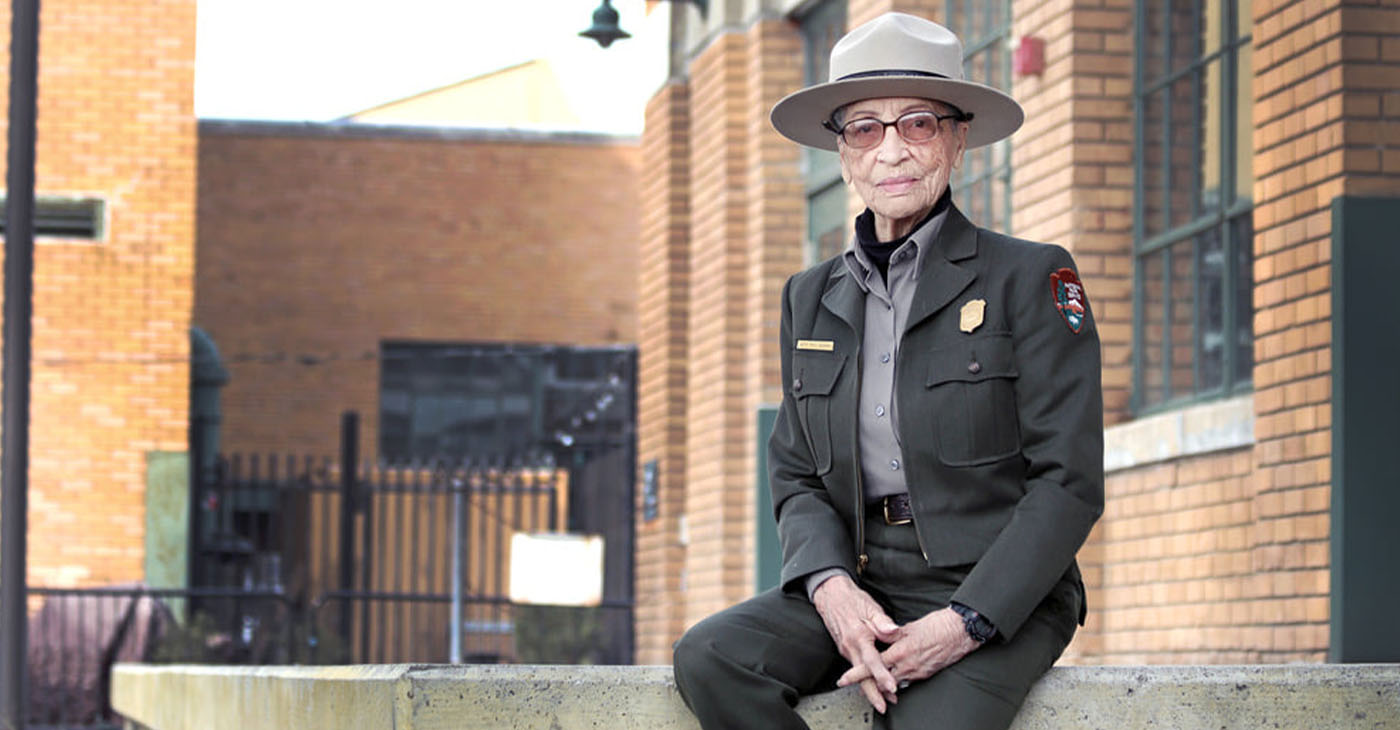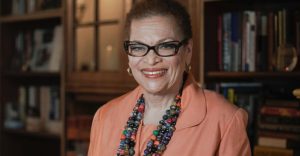Arts and Culture
Bay Area African American Women in Music: Lady Bianca Brings Urgency to Blues & Gospel
Whether wailing with her multi-octave pipes and rhythmically pumping piano in nightclubs and at blues festivals, or every Sunday morning at Oakland’s Taylor Memorial United Methodist Church, Lady Bianca infuses her songs with breathtaking urgency.
<p><p>
Born in Kansas City, raised in San Francisco and based in Oakland, she has worked with such stars as Jon Hendricks, Sly Stone, Frank Zappa and Van Morrison, but has focused for the past 33 years on writing and recording original tunes with her husband, Oakland R&B veteran Stanley Lippitt.
“I do the music; Stanley does the lyrics,” she explains. “Sometimes the chicken comes before the egg, and sometimes the egg is already there and the chicken just arranges it.”
“He sings melodies to me, but they’re never what I like. By the time I get through with it, he really likes it. He always works it to make me happy; that’s a song title in itself,” she says.
Lady Bianca, as she’s known in both clubs and the church, makes little distinction between blues and gospel music. She fondly remembers taking the bus across the Bay with her family to the Oakland Auditorium to see such gospel stars as the Mighty Clouds of Joy, the Staple Singers, Clara Ward, the Gospel Harmonettes, and the Soul Stirrers featuring Sam Cooke.
She cites Aretha Franklin’s secular debut recording, 1960’s “Today I Sing the Blues,” as a major influence on her style.
Bianca made her first recording in 1970 at age 17 with saxophonist-keyboardist Quinn Harris. She later appeared on one album by Sly & the Family Stone, one by Zappa and five by Morrison. She has recorded seven albums of her own since 1996, five of them for her and her husband’s Magic-O label.
She opens her most recent album, last year’s “Real People Music,” with an original soul ballad titled, “You’ll Be Leaving with Her” that includes an extended monologue about having a rough day at work and how she can’t wait to get home to her husband’s loving arms.
“My man is so good to me,” she states. “You know, just the other day he bought me a new mink coat, and it wasn’t even Christmas, it wasn’t my birthday and it sure wasn’t our anniversary.”
Upon arriving home, she hears voices upstairs. She thinks it’s the television at first but soon discovers him in bed with her best friend. Bianca then breaks into song, telling him to get up, get dressed and get out.
“Don’t forget your picture, too. I don’t want anything to remind me of you,” she sings.
Bianca will appear at the Apple Blossom Festival in Sebastopol on Sunday, April 19, and will perform in a tribute to Billie Holiday at Stanford University on Sunday, July 12. She can be heard on Sundays at Taylor Memorial United Methodist Church, 1188 12th Street, Oakland. Services begin at 10 a.m.
Arts and Culture
Faces Around the Bay Dr. Carl Blake, Pianist
Born in Liberty, Missouri, Carl Blake, a virtuoso and respected pianist, made his most recent migration to the East Bay in 1999. One might have seen him performing recently at Noontime Concerts in San Francisco, or at the Piedmont Center for the Arts in Oakland. He is Director of Music at The Church for the Fellowship of All Peoples in San Francisco. He was also co-organizer and collaborative pianist at Herbst Theater for The Majesty of the Spirituals concert in 2022 and has held several church positions in the Bay Area.

By Barbara Fluhrer
Born in Liberty, Missouri, Carl Blake, a virtuoso and respected pianist, made his most recent migration to the East Bay in 1999.
One might have seen him performing recently at Noontime Concerts in San Francisco, or at the Piedmont Center for the Arts in Oakland. He is Director of Music at The Church for the Fellowship of All Peoples in San Francisco. He was also co-organizer and collaborative pianist at Herbst Theater for The Majesty of the Spirituals concert in 2022 and has held several church positions in the Bay Area.
Blake obtained a Bachelor of Music from Boston University and continued post-baccalaureate studies in Jamaica before earning a Master of Arts in Music at San Jose State University. He was the recipient of two Fulbright residencies in Honduras and completed a third residency at the University of St. Petersburg in Russia. He has a Doctor of Musical Arts from Cornell University.
At age 19, Blake, then an undergraduate piano major at Boston University, was “discovered” by Impresario Dr. W. Hazaiah Williams, who is the Founder and Director of Today’s Artists/Four Seasons Arts.
Williams honored Blake by awarding him the first Marian Anderson Young Artist Award. Anderson personally presented the award at the Masonic Auditorium in S.F. Subsequently, Blake was presented by Dr. Williams in his San Francisco debut at The Herbst Theatre. Williams subsidized a year of study abroad for Blake at the Paris Conservatory of Music. Additionally, Williams sponsored Blake’s New York Weill Hall debut, where he has performed twice since. Blake performed several times at the Yachats Music Festival in Oregon.
Blake continues to perform nationally and abroad. His hobbies are reading, baking and travel. He says, “I’m still pumping ivories, as Belgian pianist Jeanne Stark described the disciplined practice of concert piano.”
Arts and Culture
Oakland Jazz Great Offers Master Class as City Declares “John Handy Day”
World-renowned jazz master saxophonist John Handy, a McClymond’s High School graduate, was presented with a Mayor of Oakland Proclamation declaring Feb. 12, as John Handy Day in the city. Handy is most notably known as the featured saxophonist for Charles Mingus on “Goodbye Pork Pie Hat” from the album “Mingus Ah Um” (1959) and on “Hard Work” from his own album “Hard Work” (1976).

By Conway Jones
World-renowned jazz master saxophonist John Handy, a McClymond’s High School graduate, was presented with a Mayor of Oakland Proclamation declaring Feb. 12, as John Handy Day in the city.
Handy is most notably known as the featured saxophonist for Charles Mingus on “Goodbye Pork Pie Hat” from the album “Mingus Ah Um” (1959) and on “Hard Work” from his own album “Hard Work” (1976).
“John Handy is a jazz icon and an inspiration to musicians everywhere,” said Ayo Brame, a 16-year-old Oakland tenor saxophone player who is enrolled at the Oakland School for the Arts.
In celebration of this day, the reception in downtown Oakland at Geoffrey’s Inner Circle was a gathering of artists, young and old, coming together in his honor and celebrating his 91st birthday.
Handy presented a Saxophone Colossus free masterclass for musicians. This class afforded a rare opportunity to learn about the saxophone from an aficionado. The class was free and open to all – saxophonists, vocalists, aficionados, students, and casual listeners.
“As a longtime friend for over 60 years, and fellow musician who has had numerous opportunities to share the stage with John, it has always been a pleasure performing with him and hearing his creative interpretations of the music and his gift of ease inspiring the next generation of jazz musicians,” said Roger Glenn, a multi-instrumentalist.
Arts and Culture
Musical Chronicling Life of Betty Reid Soskin Set for Bay Area Debut
Betty Reid Soskin’s storied 102 years includes time spent as a WWII defense worker, activist, business owner, songwriter, National Park Service park ranger and so much more. Now the Richmond icon is the subject of a musical based on her incredible life.

The Richmond Standard
Betty Reid Soskin’s storied 102 years includes time spent as a WWII defense worker, activist, business owner, songwriter, National Park Service park ranger and so much more. Now the Richmond icon is the subject of a musical based on her incredible life.
“Sign My Name to Freedom,” a San Francisco Bay Area Theatre Company (SFBATCO) production which will focus on the life, music and writing of Ms. Soskin, will premiere at San Francisco’s Z Space Friday, March 29 and continue through Saturday, April 13. Tickets range from $15–$65 and can be purchased online at https://www.sfbatco.org/smntf
The musical is directed by Elizabeth Carter, while playwright Michael Gene Sullivan integrates Ms. Soskin’s own music throughout dialogue between what SFBATCO calls “The Four Bettys” as they progress through a century of experiences of this awe-inspiring American woman.
The cast of “Sign My Name to Freedom” features Tierra Allen as Little Betty, Aidaa Peerzada as Married Betty, Lucca Troutman as Revolutionary Betty and Cathleen Riddley as Present Betty Reid Soskin, according to Artistic Director Rodney Earl Jackson Jr. and Managing Director Adam Maggio. Other casting will be announced in the future.
Jackson said that having Soskin’s blessing to steward her life’s story is an honor and career highlight for him and that her journey stands as “a beacon for Black Americans, women and people of color all across the world [and] is a testament to the strength of the human spirit.”
San Francisco’s Z Space is located at 450 Florida St. in San Francisco. Check out the trailer here at https://www.youtube.com/watch?v=B-ap9N2XBB0
-

 Activism4 weeks ago
Activism4 weeks agoOakland Post: Week of March 20 – 26, 2024
-

 #NNPA BlackPress3 weeks ago
#NNPA BlackPress3 weeks agoCOMMENTARY: D.C. Crime Bill Fails to Address Root Causes of Violence and Incarceration
-

 #NNPA BlackPress3 weeks ago
#NNPA BlackPress3 weeks agoMayor, City Council President React to May 31 Closing of Birmingham-Southern College
-

 #NNPA BlackPress3 weeks ago
#NNPA BlackPress3 weeks agoFrom Raids to Revelations: The Dark Turn in Sean ‘Diddy’ Combs’ Saga
-

 #NNPA BlackPress3 weeks ago
#NNPA BlackPress3 weeks agoCOMMENTARY: Lady Day and The Lights!
-

 #NNPA BlackPress3 weeks ago
#NNPA BlackPress3 weeks agoBaltimore Key Bridge Catastrophe: A City’s Heartbreak and a Nation’s Alarm
-

 #NNPA BlackPress3 weeks ago
#NNPA BlackPress3 weeks agoBaltimore’s Key Bridge Struck by Ship, Collapses into Water
-

 Activism3 weeks ago
Activism3 weeks agoOakland Post: Week of March 27 – April 2, 2024



















































